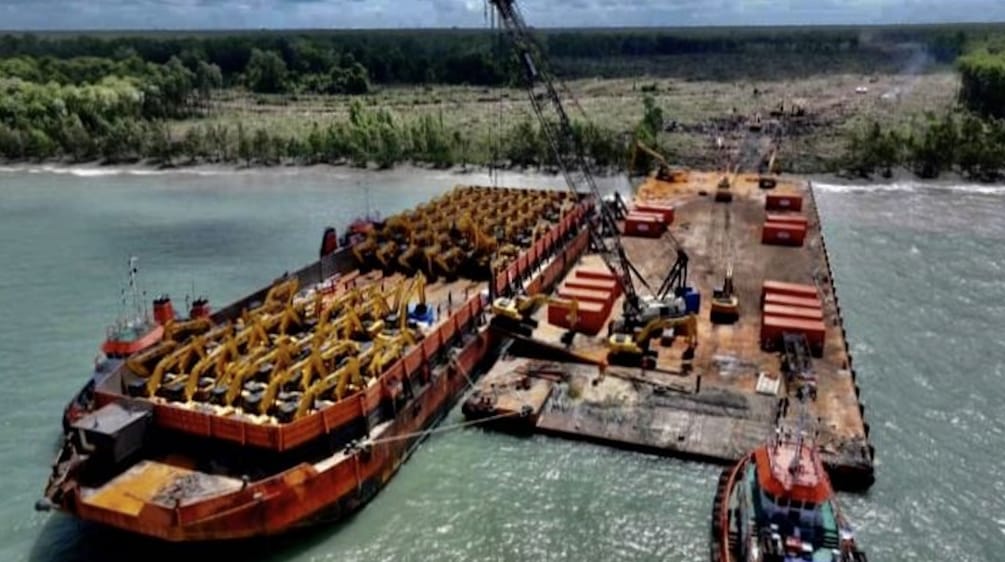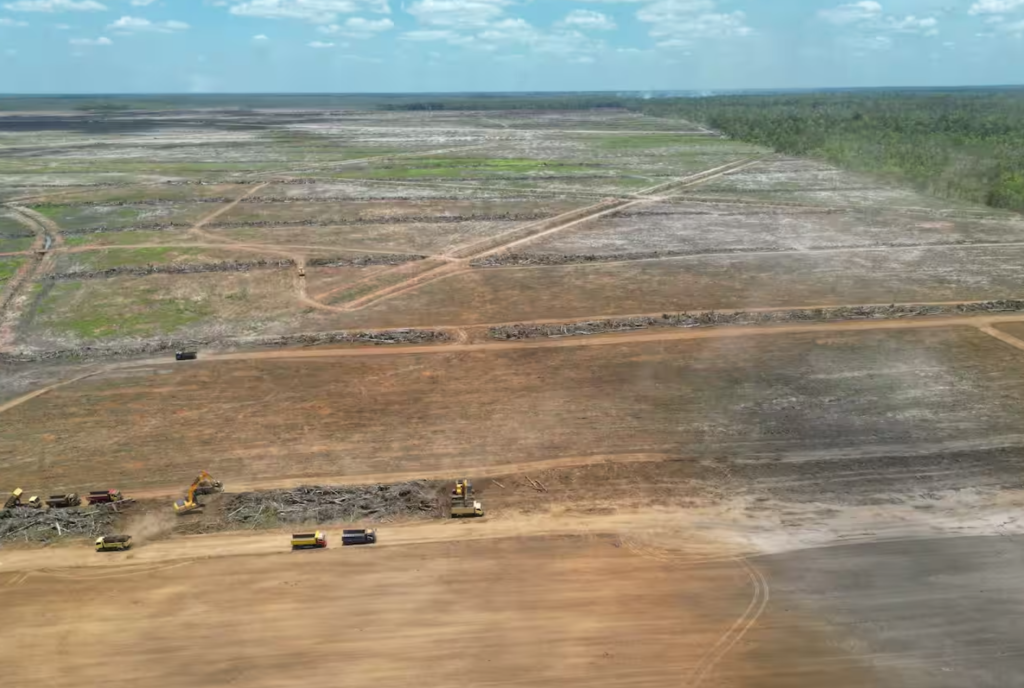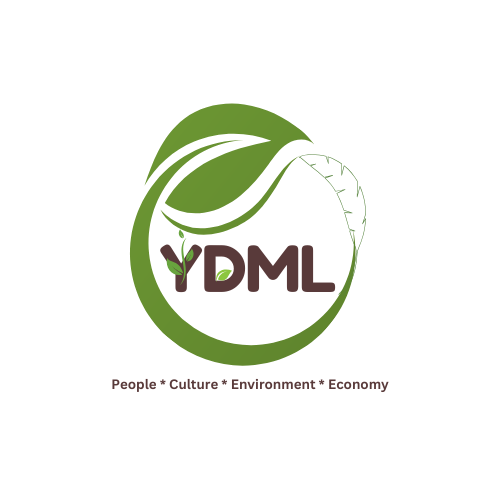The Papuan Indigenous community in Merauke has expressed a strong and unified rejection of the National Strategic Project (NSP) aimed at establishing rice fields, as well as initiatives for sugar and bioethanol self-sufficiency within their territory. This project, which targets the lands of the Maklew, Khimaima, and Yei indigenous communities, has raised significant concerns among locals due to its encroachment on their ancestral lands. The community asserts that the project not only threatens their traditional way of life but also involves methodologies that they deem to be harsh and exploitative. The members of the Indigenous community are calling for recognition of their rights and the preservation of their land, urging authorities to reconsider any actions that disregard their cultural heritage and environmental sustainability.
The Merauke National Strategy Program poses significant environmental concerns, particularly due to the absence of a Strategic Environmental Impact Assessment (SEIA). This oversight not only threatens local ecosystems but also jeopardizes the livelihoods of indigenous communities that rely on the land for sustenance. Many of these communities practice subsistence living, depending heavily on the natural resources around them. Their survival is closely linked to the health of sago groves, agricultural gardens, and surrounding forests, which provide essential food sources. The degradation of these vital ecosystems could lead to a devastating loss of their cultural heritage and traditional ways of life. Without adequate assessment and consideration, the project could irreparably harm the environment and the people who depend on it.


The unilateral issuance of permits for investment in the extractive industry sector by the government has become prevalent across the territory of the Papuan Indigenous community. This trend reflects Jakarta’s colonial mindset, perceiving Papua as an unclaimed territory or “empty land.” This perspective justifies the relentless authorization of extractive industry operations in Papua, despite its designation as a region with special autonomy status.
The expansion of permits, particularly within the plantation sector, poses a significant threat to the region’s pristine rainforests, leading to increased deforestation rates that jeopardize both Papua’s biodiversity and its climate regulation. Moreover, Indigenous communities are at risk of losing their land and forest rights, which are integral to their culture, livelihood, and identity.
Currently, YDML (Dahetok Milah Lestari Foundation) is providing vital support to 18 clans from the Wambon/Mandobo Tribe. These clans firmly oppose the granting of permits to the oil palm plantation company PT Papua Berkat Pangan, which aims to develop a vast area of 34,092.18 hectares. The community’s resistance underscores their commitment to safeguarding their ancestral lands and protecting their rights against encroaching commercial interests. Through collective action and advocacy, they seek to assert their sovereignty and ensure a sustainable future for generations to come.
I will stand firm and refuse to cede even a fraction of our land to the company. This land is an integral part of our identity and heritage, and I am committed to defending our customary rights with unwavering determination. I will protect it fiercely, ready to fight for our community and values to the very last breath (by Vincen Kuwipalo).
